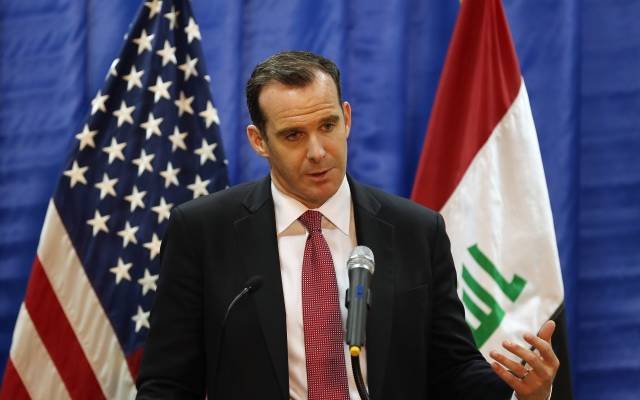The goal of the talks was to reach an ‘understanding’ between the sides.
By JNS
American and Iranian officials held indirect talks in Oman in May, Axios reported on Friday.
Although the May 8 visit to Oman of White House Coordinator for the Middle East and North Africa Brett McGurk had been previously reported, the indirect communications with Iran had not been.
The goal of the indirect messaging was to reach an “understanding” between the sides according to which Iran would de-escalate its nuclear program, reduce its destabilizing actions in the Middle East and rethink its supply of weapons to Russia for its war in Ukraine.
The United States reportedly warned Iran it would pay dearly if it moved toward the 90% uranium enrichment required for a nuclear weapon.
Iran’s Deputy Foreign Minister and its top nuclear negotiator, Ali Bagheri Kani, was part of the Iranian delegation, a source told Axios.
U.S. Secretary of State Antony Blinken stressed America’s focus on talks to counter “Iran’s destabilizing influence in the region” and “nuclear escalation” during a June 8 press conference with Saudi Foreign Minister Prince Faisal bin Farhan Al Saud in Riyadh:
“The United States continues to believe that diplomacy, backed by economic pressure, by deterrence, and by strong defense cooperation, is the best way to avoid counter these dangerous actions. We support efforts by Saudi Arabia to de-escalate tension and stabilize relations,” he said.
According to Ynet, the likelihood of an agreement between Iran and the United States is increasing. It reports that Washington also has been holding indirect talks with Tehran in Qatar.
Israel’s position is that the diplomatic path is a mistake and the most effective way to stop Iran from pursuing its nuclear ambitions is with a credible military threat and the understanding that it will pay a steep price if it crosses red lines.
Israel’s Defense Minister Yoav Gallant is set to meet U.S. Secretary of Defense Lloyd Austin on Thursday in Europe, Ynet reported.
